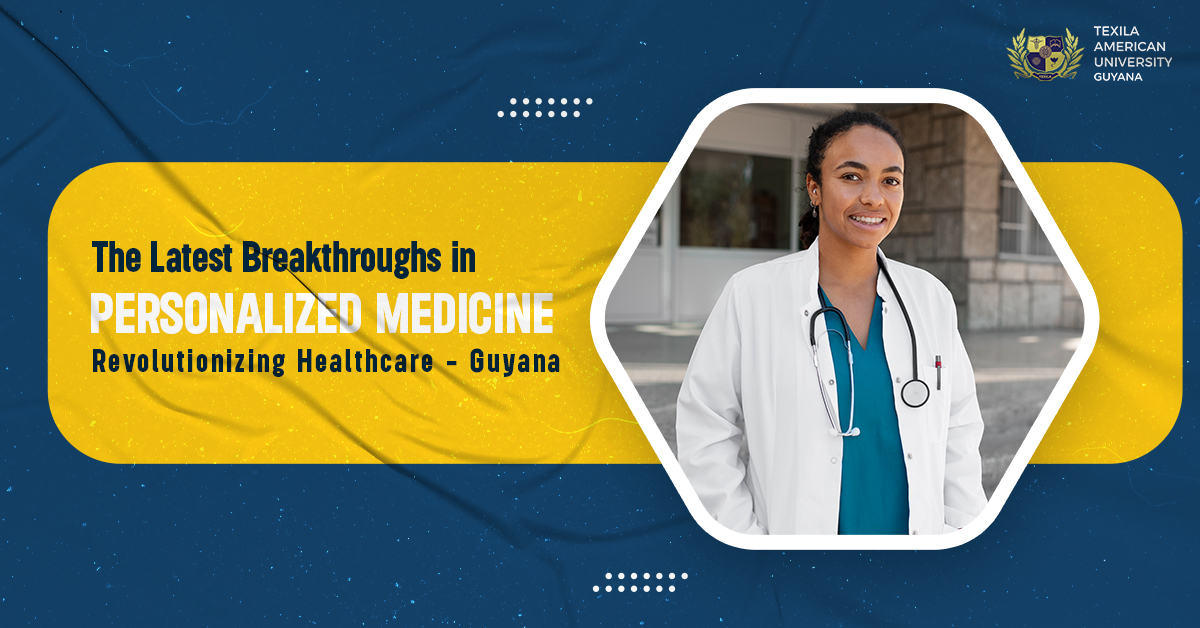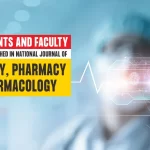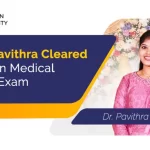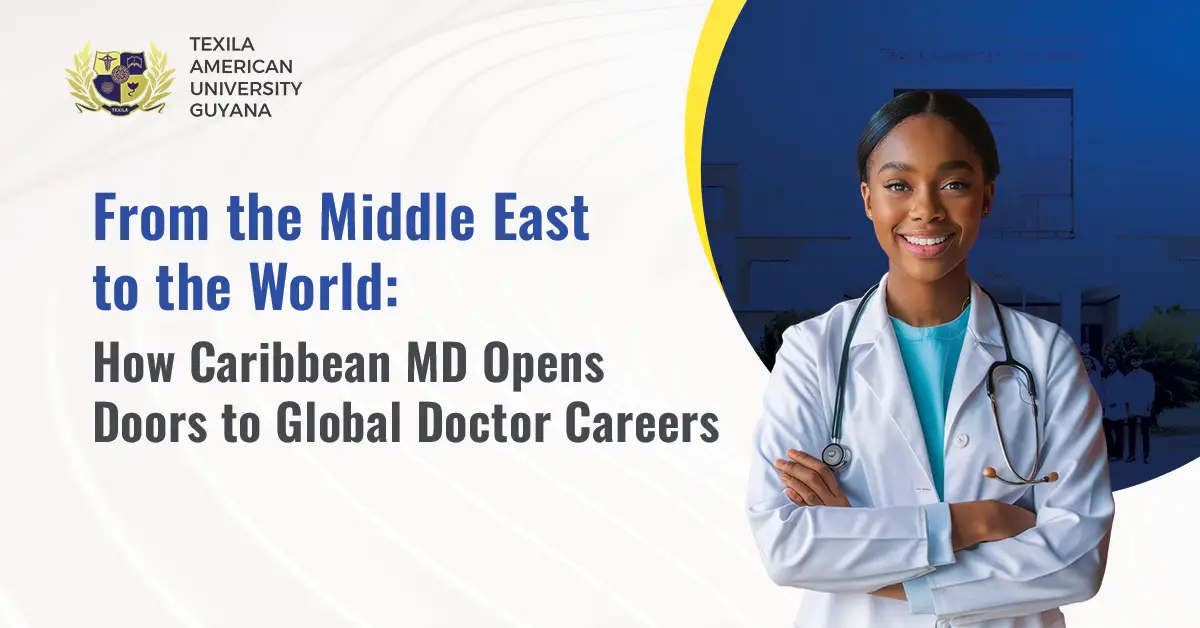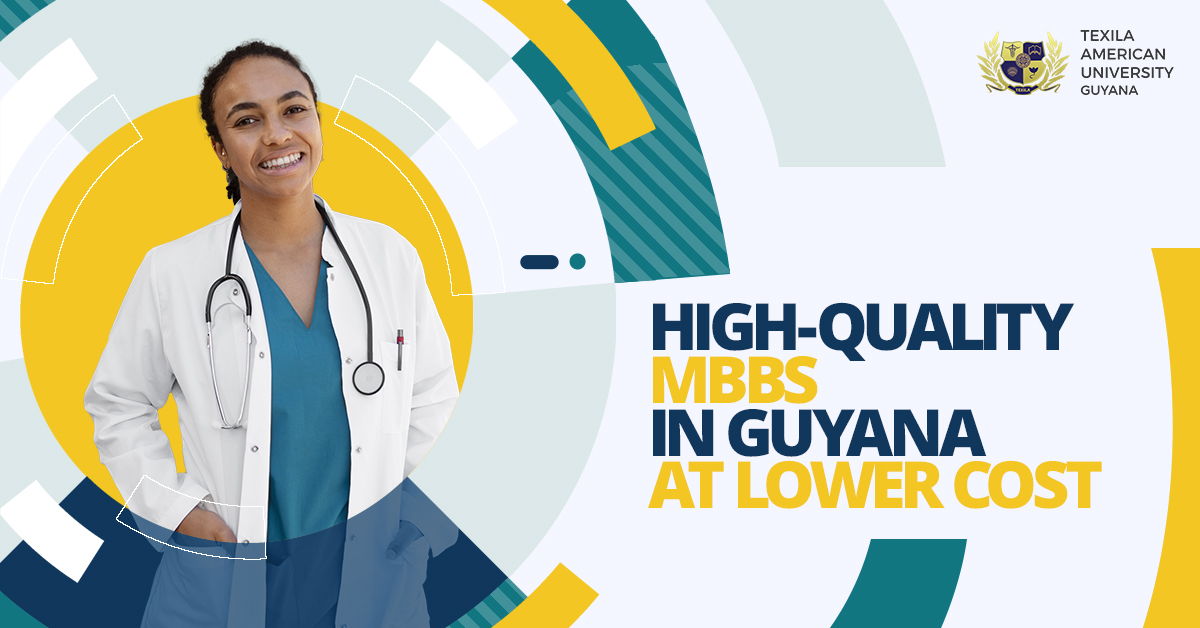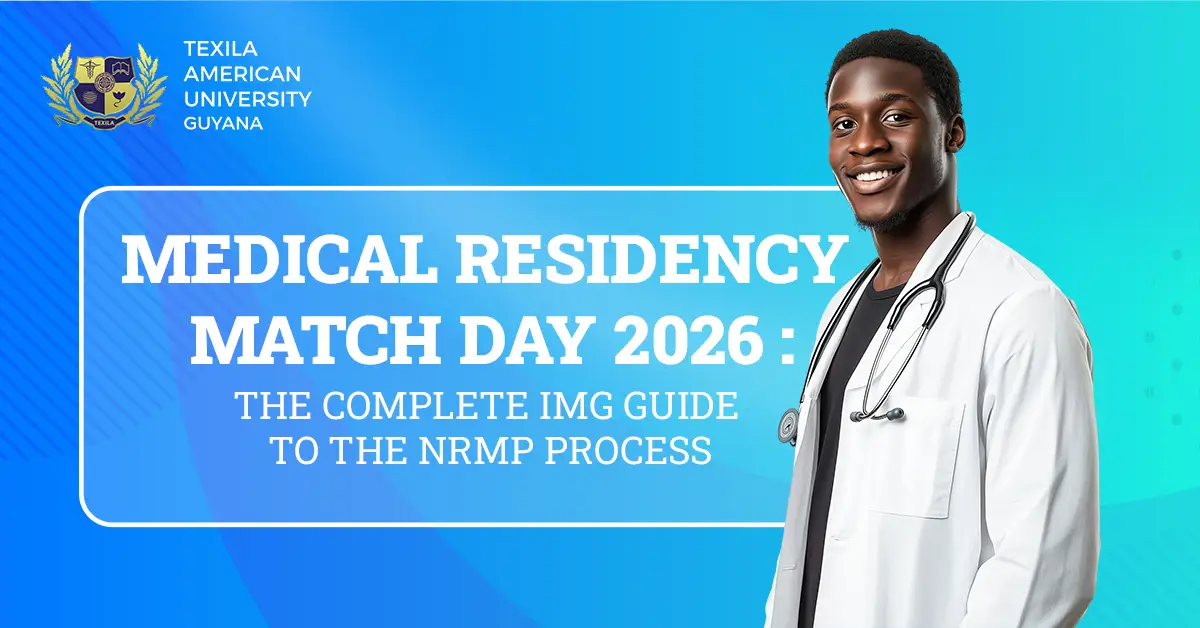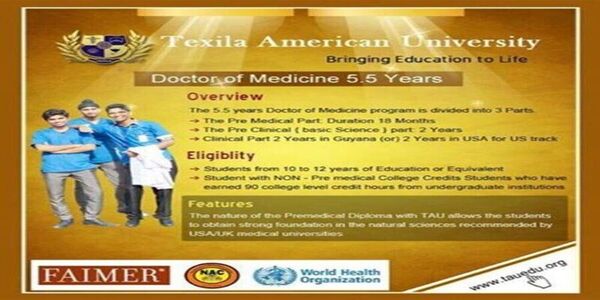Blog Summary
- Introduction
- MD Programs in the Caribbean: A Pathway to Becoming a Doctor without NEET Exam
- Revolutionizing Medical Education: Exploring the MD Course Duration and Curriculum
- The Latest Breakthroughs in Personalized Medicine: Case Studies from MD Programs
- The Caribbean as a Premier Destination for Medical Education: Top MD Programs
- Global Perspective: Best Countries to Study Medicine and Revolutionize Healthcare
Introduction
Personalized medicine is revolutionizing the healthcare landscape, ushering in a new era of tailored treatments and improved patient outcomes. With recent scientific research and technological breakthroughs, healthcare providers can deliver individualized care based on a patient’s unique genetic makeup, lifestyle factors, and specific disease characteristics. This transformative approach moves away from the traditional one-size-fits-all model and embraces precision medicine, where treatments are custom-made to each patient’s needs.
The latest breakthroughs in personalized medicine have paved the way for more accurate diagnoses, targeted therapies, and proactive disease prevention strategies. A personalized medicine approach has the potential to revolutionize healthcare, increasing the effectiveness of treatments and ultimately improving patients’ quality of life by using the power of genetic data, molecular diagnostics, and sophisticated data analytics.
MD Programs in the Caribbean: A Pathway to Becoming a Doctor without NEET Exam
Many aspiring doctors worldwide dream of pursuing a career in medicine. However, clearing the NEET (National Eligibility cum Entrance Test) exam in their home country can pose a significant challenge for some students. Thankfully, the Doctor of Medicine (MD) programs in the Caribbean provide a valuable opportunity for these individuals to achieve their medical aspirations.
The Caribbean has become a sought-after destination for medical education, attracting students from across the globe. These MD programs offer an alternative route for students who may still need to meet the NEET requirements or face tough competition in their home countries.
A significant advantage of pursuing an MD program in the Caribbean is the absence of the NEET exam requirement. It allows students to focus on their academic strengths and passion for medicine without the added pressure of a highly competitive entrance examination. It opens doors for aspiring doctors who genuinely care about healthcare and are determined to contribute.
Caribbean MD programs provide a comprehensive curriculum, establishing a solid medical knowledge and skills foundation. The MD course typically spans four to six years, during which students receive quality education and training in various medical disciplines, including the latest advancements in personalized medicine.
Studying in the Caribbean offers a unique multicultural experience. The region’s vibrant and diverse cultural heritage allows students to immerse themselves in various traditions, languages, and perspectives. This exposure fosters a greater understanding of global healthcare challenges and enhances their ability to provide patient-centered care in a multicultural society.
Moreover, the Caribbean is home to some of the best countries to study medicine. Renowned medical schools in Barbados, Jamaica, and the Bahamas have gained international recognition for their excellence in medical education. These institutions provide state-of-the-art facilities, experienced faculty, and a supportive learning environment, ensuring students receive a high-quality education.
Aspiring doctors without NEET exam clearance can embark on a rewarding journey toward becoming medical professionals by pursuing an MD program in the Caribbean. They acquire the necessary knowledge, skills, and clinical experience to excel in medicine while enjoying the enriching experience of studying in a vibrant and culturally diverse region. The MD programs in the Caribbean are revolutionizing medical education and offering a pathway for determined individuals to fulfill their dreams of becoming doctors.
Revolutionizing Medical Education: Exploring the MD Course Duration and Curriculum
Medical education is constantly evolving to meet the ever-changing needs of the healthcare industry, including the duration and curriculum of the MD course. The MD program is vital in preparing future doctors, typically spanning several years of intensive study and clinical training. It equips students with the necessary knowledge, skills, and practical experience to excel in medicine.
Recent years have witnessed a significant transformation in the MD curriculum due to the emergence of personalized medicine. This approach recognizes the uniqueness of each patient and the importance of tailored treatment. Medical education has shifted its focus to incorporate personalized medicine principles and applications, ensuring that future doctors are well-versed in this revolutionary approach.
The MD curriculum now integrates genomics, molecular diagnostics, and precision therapeutics. Students learn to analyze genetic information, interpret diagnostic tests, and utilize targeted therapies for individualized patient care. This inclusion reflects the transformative potential of personalized medicine in improving patient outcomes and revolutionizing healthcare.
Furthermore, technology has played a crucial role in enhancing the learning experience in MD programs. Cutting-edge resources like simulation labs, virtual patient platforms, and digital databases provide immersive and interactive learning opportunities. These technological advancements enable students to develop critical thinking skills, practice clinical decision-making, and stay updated with the latest medical research.
The duration and curriculum of the MD course vary across regions and countries. The Caribbean, renowned for its MD programs, offers comprehensive and globally recognized medical education. Countries like Barbados, Jamaica, and the Bahamas provide state-of-the-art facilities, experienced faculty, and a supportive learning environment. The curriculum encompasses traditional medical principles and the latest advancements in personalized medicine.
In conclusion, the MD course duration and curriculum have adapted to meet the changing healthcare landscape. The integration of personalized medicine empowers future doctors to deliver individualized patient care. With the aid of technology, MD programs equip students with the necessary skills and knowledge to navigate modern medicine. Medical education programs in the Caribbean or other top countries are constantly improving to train future doctors with the knowledge and skills to innovate healthcare and improve patient health.
The Latest Breakthroughs in Personalized Medicine: Case Studies from MD Programs
Personalized medicine has revolutionized healthcare by tailoring treatments to individual patients based on their unique characteristics. MD programs, particularly those in the Caribbean, have been at the forefront of incorporating personalized medicine. Let us explore some real-life case studies that exemplify the application of personalized medicine and highlight advancements in patient care and treatment outcomes.
In one case study, a patient with advanced lung cancer underwent genomic testing as part of their personalized treatment plan. The analysis revealed a genetic mutation that made the tumor susceptible to targeted therapy. By administering this precision medicine, the patient experienced a significant reduction in tumor size and improved survival rates. Demonstrates how personalized medicine guides treatment decisions for more effective outcomes.
Another compelling case study involved a child with a rare genetic disorder. Through genetic sequencing, researchers identified the precise genetic mutation responsible. With this information, a personalized treatment plan, including gene therapy, was developed. The therapy successfully corrected the congenital disability, dramatically improving the child’s health and quality of life. It showcases personalized medicine’s transformative potential in rare and complex diseases.
MD programs have also made groundbreaking advancements in pharmacogenomics, studying how genetic variations impact medication response. In a case study involving patients with psychiatric disorders, genetic testing identified variations in drug-metabolizing enzymes. It allowed physicians to tailor medication regimens based on genetic profiles, optimizing treatment efficacy while minimizing side effects. Personalized medicine in psychiatry has improved medication selection, treatment response, and patient well-being.
These case studies illustrate the impact of personalized medicine in MD programs. By leveraging genomic information and individualized approaches, doctors provide targeted treatments and achieve better outcomes. MD programs in the Caribbean, known for comprehensive education and personalized medicine integration, are at the forefront of these breakthroughs.
Through collaborative efforts, MD programs in the Caribbean push the boundaries of personalized medicine. They equip future doctors with knowledge and skills to apply customized medicine while fostering a culture of innovation and research.
In conclusion, real-life case studies from MD programs showcase personalized medicine’s potential in tailoring treatments. Genomic testing, targeted therapies, gene therapy, and pharmacogenomics have significantly improved patient care and outcomes. MD programs in the Caribbean play a crucial role in advancing personalized medicine and transforming healthcare.
The Caribbean as a Premier Destination for Medical Education: Top MD Programs
The Caribbean has become a preferred destination for aspiring doctors seeking a medical career. Renowned for its top-notch MD programs, this vibrant region offers numerous advantages, making it an attractive choice for studying medicine.
Medical schools in countries like Barbados, Jamaica, and the Bahamas have gained international recognition for their excellence in medical education. These institutions boast state-of-the-art facilities, experienced faculty, and a supportive learning environment, ensuring students receive a comprehensive education combining theoretical knowledge and hands-on clinical training.
The MD programs in the Caribbean provide a well-structured curriculum to equip students with the necessary skills and knowledge to excel in the medical field. The MD course typically spans four to six years, during which students undergo rigorous training in various medical disciplines. From anatomy and physiology to pharmacology, pathology, and clinical rotations, the curriculum fosters critical thinking, problem-solving abilities, and clinical competence.
Studying medicine in the Caribbean offers unique benefits. The region’s multiculturalism, with its rich blend of traditions, languages, and perspectives, allows students to immerse themselves in a multicultural society. Enhances their cultural competency and understanding of global healthcare challenges, preparing them to serve diverse patient populations with a collaborative and inclusive approach to patient care.
Another advantage of pursuing an MD program in the Caribbean is the absence of the NEET exam requirement. It benefits students who may still need to clear the NEET exam in their home country or face intense competition. Caribbean MD programs eliminate this additional barrier, allowing students to focus on their passion for medicine and academic strengths without the pressure of a highly competitive entrance examination.
Moreover, the Caribbean offers an attractive lifestyle and a pleasant climate, providing a conducive environment for studying and personal growth. The region’s beautiful beaches, vibrant culture, and warm hospitality create an enriching and enjoyable student experience.
In conclusion, the Caribbean has established itself as a premier destination for medical education. With reputable MD programs, comprehensive curricula, and numerous benefits, students can receive top-quality education while immersing themselves in a multicultural and supportive environment. Pursuing an MD program in the Caribbean opens doors to a rewarding career in medicine, equipping future doctors with the skills and knowledge necessary to impact the healthcare field positively.
Global Perspective: Best Countries to Study Medicine and Revolutionize Healthcare
Several countries have become leaders in medical education and the revolutionization of healthcare. These nations offer exceptional MD programs that integrate personalized medicine and contribute to advancing global healthcare.
The Caribbean stands out as a top destination for studying medicine. Medical schools in countries like Barbados, Jamaica, and the Bahamas have gained international recognition for their comprehensive curriculum and commitment to personalized medicine. These programs provide state-of-the-art facilities, experienced faculty, and a supportive learning environment. Students receive a well-structured curriculum that equips them with the skills and knowledge to excel in the medical field. Integrating personalized medicine concepts prepares future doctors to deliver individualized patient care.
Other countries have also played significant roles in revolutionizing healthcare. The United States is known for its prestigious medical schools and cutting-edge research institutions. American MD programs prioritize personalized medicine, using genomic information and advanced technologies to customize treatments for each patient. These programs drive medical innovation and improve patient outcomes.
Canada excels in medical education and the healthcare revolution. Canadian MD programs prioritize personalized medicine, providing students with a strong foundation in this transformative approach. Collaborations with research institutions and healthcare organizations contribute to advancements in personalized medicine and its implementation in clinical practice.
Australia, with its high-quality education system, offers top-tier MD programs. These programs prioritize personalized medicine and provide hands-on clinical training and research opportunities. Australian doctors lead the way in applying customized medicine principles to enhance patient care and treatment outcomes.
In conclusion, several countries lead in medical education and healthcare revolution. The Caribbean offers exceptional MD programs with a focus on personalized medicine. The United States, Canada, and Australia also significantly contribute to advancing personalized medicine and global healthcare. By integrating customized medicine into their curricula and promoting innovation and research, these countries shape the future of healthcare and prepare doctors to make a lasting impact.

